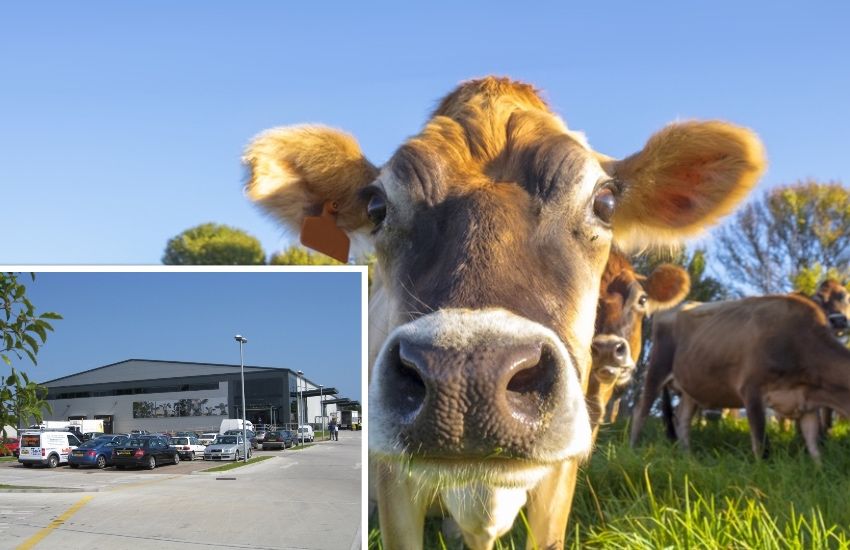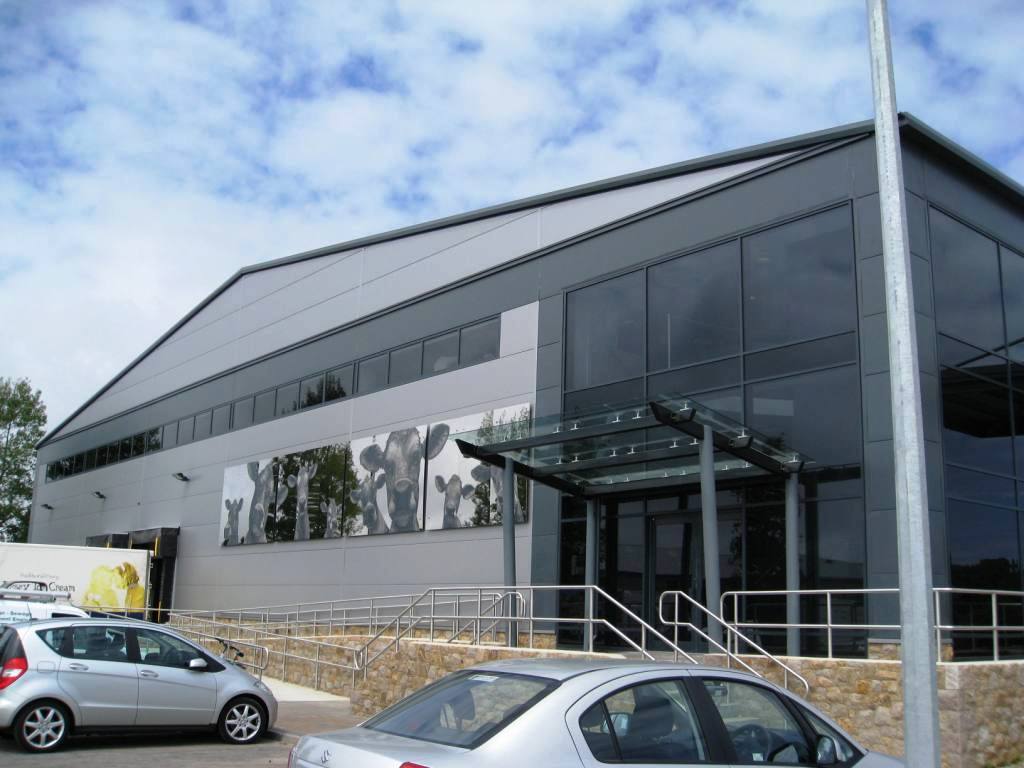


Jersey's dairy farmers are struggling to come to terms with what's being described as the worst incident to hit their sector in the last 40 years.
Over the weekend, 112 cows died following a mystery illness - an investigation is now underway to try and find out what happened. It led to the destruction of 33,000 litres of milk, as a precaution.
In total, more than three-quarters of the 137-strong Jersey herd at Woodlands Farm died.
Philip Le Maistre, Chairman of the Milk Marketing Board, said he was continuing to work with the Le Boutillier family, who have run Woodlands Farm for five generations.
He said: "It's been a traumatic time for them and I think will take some time for them to get over this."
Mr Le Maistre said he had been involved in the dairy industry for 40 years and had never experienced an incident of this scale before. He said that he hoped the investigation would provide some answers.

Pictured: 33,000 litres of milk had to be destroyed, as a precaution.
"Everyone wants to get to the bottom of it, and lots of people are working tirelessly on the investigation,' he said. 'It will take time, so for the moment we've just got to wait for the outcome and then we can see if there's anything further that needs to be done."
Meanwhile, Guernsey States Veterinary Officer, David Chamberlain commented:
“I cannot recall any animal health incident of this magnitude in my 35 years as a vet in the Channel Islands. This distressing event will inevitably unsettle all involved and my thoughts are with the farmer, their herdsmen, the States of Jersey team handling the situation and especially the vet. The case has been fast-moving and challenging to manage.
"While it’s a tragedy, thankfully it appears to be limited to a single group of animals and is not a contagious disease. Robust precautions have been implemented to protect other cattle and the public. While there is a working diagnosis, confirmatory tests are underway and being fast-tracked. My support was modest and primarily to act as a ‘sounding-board’ for my Jersey counterpart.”
Eamon Fenlon, Managing Director of Jersey Dairy, said the incident was a very significant one, estimating that there were around 2,250 milking cows on Island farms prior to this incident.
Mr Fenlon said he was confident that the incident had been contained and that there was no risk to the milk supply.
As a precaution, 33,000 litres of milk collected across the Island on Friday, including some from Woodlands, is to be disposed of.
Mr Fenlon said that there was no risk to milk supplies, as local demand only accounted for around 60% of the total output. The remaining milk is used for the manufacture of export products and soft-scoop ice cream for 2023 sales, and this production could be temporarily scaled down if necessary, he added.
Although contaminated feed was initially thought to be likely to have sparked the incident, Environment Minister Jonathan Renouf said the investigation would need to consider other factors specific to the farm in question.
He said: "It seems like cattle on other farms have had the same feed without there being any effects, so it'll be necessary to look at whether there are other factors that are specific to this group."
Over 100 cows at a Jersey farm have died. Feed is being analysed and milk is being disposed of as a precaution. Director of Public Health, Professor Peter Bradley reassures Islanders there is no risk to human health and is closely monitoring the situation. https://t.co/CzfnPdmiMc pic.twitter.com/9Xl7On95m5
— Government of Jersey (@GovJersey) December 19, 2022
The cattle affected were all from the high-yielding 'group A' herd at Woodlands. The farm also has a separate 'group B' herd of around 100 cattle that have not been affected.
Deputy Renouf said he had been advised that 25 cows from the affected group had survived so far and that it was hoped the death-toll would not rise further.
He said: "I’m reassured to hear that no milk from the specifically affected sub-herd has entered the food chain, and that every precaution has been taken to safeguard public and animal health."
Samples from some of the cows that died, and from foodstuffs they ingested, have been flown to UK laboratories. Deputy Renouf said the analysis of samples could take around a week due its specialist nature.
Comments
Comments on this story express the views of the commentator only, not Bailiwick Publishing. We are unable to guarantee the accuracy of any of those comments.